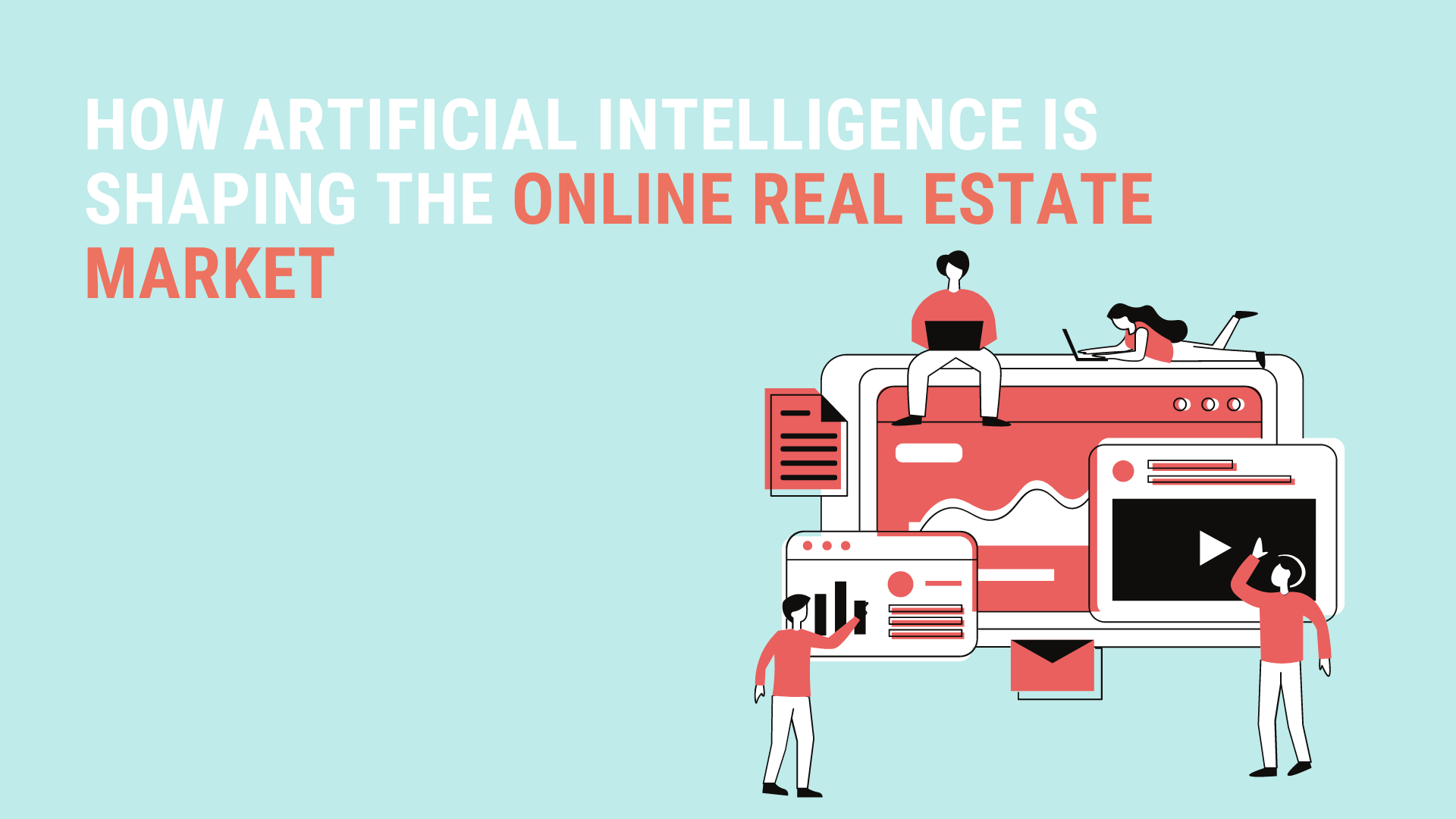The Age of Property AI is Here
How Artificial Intelligence is Shaping the Online Real Estate Market
July 23, 2021 | 3 min read

While in the past, there was some debate about exactly how big of a role artificial intelligence would play in our daily lives, the doubt is now all but over. Now in 2021, the message is clear; AI is here, and it’s here to stay. Beyond robots, Netflix, and Amazon, artificial intelligence now plays a massive role in most aspects of lives, and real estate is no exception. Over the last five years, property AI has advanced and accelerated significantly, reshaping one of the world’s oldest industries. But what are the use cases of AI in the online real estate landscape? Let’s dive into it.
What is Property AI?
Property AI describes the use of artificial intelligence, machine learning, computer vision, and other related disciplines within the real estate space.
Property AI represents a new age for the real estate industry. For almost half of human history, our ancestors lived a nomadic life, moving from place to place without much sense of ownership over the land. The agricultural revolution changed this. Suddenly people were staying put and owning land. Although it differed somewhat between countries, for many thousands of years following the normalization of land ownership, the exchange of assets was handled solely without technology.
With the dot-com boom, real estate companies started to digitize and enter the online space, and that’s where things settled for a good decade. Interested buyers or renters could browse for properties online, but the experience was often lacking. Some ideal listings would fail to appear in search results. Sometimes the website wouldn’t capture critical details about a property in the description or listing metadata. The list goes on. Still, searching for homes online has skyrocketed in popularity. For instance, in 2019, over 50% of buyers found their homes online, and only 28% used a real estate agent.
With the advent of artificial intelligence, the online real estate experience has received a massive boost, solving many user experience problems that have plagued real estate websites for the past few decades. But property AI goes beyond solving problems. The AI solutions being used today have transformed the process of finding property online, ushering in many new and exciting features that would have seemed futuristic just a few years ago.
Before we look at how property AI is transforming the market, let’s quickly look at what some of these technologies are and how they work.

Artificial Intelligence (AI)
AI is a broad term used to describe computer systems that can perform tasks that usually require human intelligence. Examples of tasks that typically require human intelligence include decision-making, translation, visual perception, speech recognition, and information prioritization. AI can conduct these tasks due to complex mathematical algorithms.
Machine Learning
Machine Learning (ML) is a subset of AI focused on machines that become more intelligent over time without direct programming from humans. Essentially, ML systems become smarter by being fed more and more data and recognizing patterns in the environment.
Computer Vision and Image Recognition
These technologies mimic the visual processing capabilities of humans; only they can do it at lightning speed. Computer vision describes a computer’s ability to extract information from images. It can recognize objects, label and classify objects, and feed this information to other systems that can take action.

Use Cases of AI in Real Estate
Improving the Online Home Search Experience
With online fast becoming the only way to find your next property, the search experience has never been more critical. For users, a highly functioning search experience means finding the right property sooner. For real estate portals, it means offering more value to users and edging out the competition.
So, what are some of the ways AI is being utilized in this area?
Personalized experiences
AI can leverage user data to provide meaningful search results that match the specific user’s wants and needs. This can be done in several ways. For example, the algorithm might use customer segmentation data to profile the user and give more weight to specific property characteristics. For example, vacation buyers have different priorities than retirees or international buyers. The algorithm could also use individual users’ data if it’s available. This data might include things like age, occupation, income, hobbies, and so on. For instance, if the user likes to play tennis, they might want to see properties within a few miles of tennis courts.

Gleaning More Information From Images
Property descriptions often don’t capture all the details about a property, and this can harm the listing’s rank in the search process. However, computer vision technology can fill in the gaps. For example, algorithms can detect whether a kitchen has been newly renovated, whether hardwood floors are present, fireplaces, and other architectural details. This means users can find properties with the characteristics they want even if those details weren’t captured in the description or listing metadata.
Dynamic Property Valuation
Property valuation used to be a lengthy manual process that lacked consistency. Similar properties could be valued very differently depending on who turned up on the day. However, with automated AI-driven valuation, the process is fair, fast, and accurate. Valuation algorithms leverage public records, crime statistics, school district ratings, access to local amenities, and more.
Lead Generation
Distinguishing between website visitors who genuinely intend to buy and those who are just browsing for fun used to be more of an art than a science. However, with the help of AI, it’s now firmly a science. Computer systems use many factors like browsing history, session length, and other available data to identify the most interested parties and feed these details to real estate agents.
Other Notable Use Cases
So far, we’ve focused on the ways property AI impacts online real estate companies and their customers. However, there are many other ways that AI is shaping the industry at large.
Some machine learning algorithms can identify factors that impact house prices in ways you would never imagine—for example, the proximity of homes to a Starbucks or specialty grocery store directly affects the price. This information is extremely valuable to investors. And investors, just like everyone else, are shopping for properties online.
Another example of property AI that impacts investors is computer vision analysis during construction. A company in California is using robots and LIDAR imaging to detect issues on construction sites before they lead to costly problems. If this technology becomes widespread, we’ll see less budget overrun and potentially more properties being built, further supporting the thriving property market.
Want to get more high-quality contact requests? Get our ebook now, learn how industry leaders and e-commerce are using data & personalization to gain more relevant leads.
How House Alerts Help To Obtain Higher Click-Through Rates
Thanks to house alert systems, you can quickly inform potential buyers when new properties that match their criteria show up. Here is a step-by-step guide that will show you how you can retarget potential customers and help them find the house of their dreams.
Two Unique Dashboards That Will Help Your Real Estate Agents Close More Deals
Being successful in sales is about knowing your product inside out and knowing everything there is to know about your customer. Luckily, it’s easier to achieve these two goals today than ever before by using some unique dashboards. Read everything about it here:
What Impact Did the Pandemic Have on Real Estate Websites?
What impact did the pandemic have on real estate websites? To answer this question, let’s take a look at the pandemic real estate trends:



